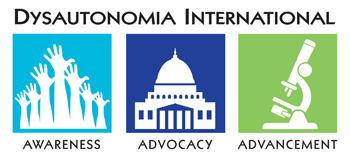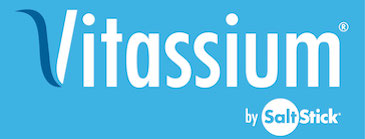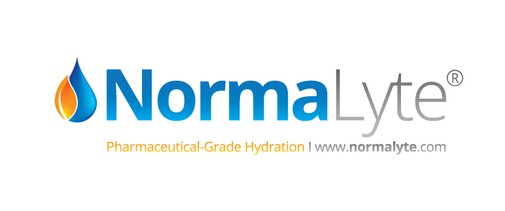Home >> Get Involved >> Advocacy
Advocating for Dysautonomia Patients
Dysautonomia International believes that in order to improve the circumstances of current and future dysautonomia patients, we must advocate for systemic policy changes that address the needs of our patient community. Here are some of the policy issues we're working on.
LETTERS
March 10, 2025 - Coalition Letter to Congress in Support of the SSI Savings Penalty Elimination Act
November 7, 2024 - Coalition Letter to Congress in Support of Home Infusion Services
October 27, 2023 - Dysautonomia International Letter to Senator Cassidy on NIH Reform
October 19, 2023 - Coalition Letter to the United Nations on the Impact of Infection-Associated Chronic Conditions in Pandemic Preparedness
October 18, 2023 - Dysautonomia International Letter to Senate in Support of SSI Savings Penalty Elimination Act
October 17, 2023 - Dysautonomia International Letter to House in Support of SSI Savings Penalty Elimination Act
July 2023 - Coalition Letter in support of the National Task Force on the COVID-19 Pandemic Act
May 24, 2023 - Dysautonomia International letter to NINDS Director Walter Koroshetz and NHLBI Director Gary Gibbons regarding POTS research funding
May 8, 2023 - Dysautonomia International letter to NIH Director Lawrence Tabak regarding POTS research funding
March 22, 2023 - Dysautonomia International testimony before the House Committee on Appropriations regarding POTS research funding
December 2022 - Dysautonomia International letter to Representative Katherine Clark regarding POTS research funding
March 10, 2022 - Coalition letter to Congress regarding the need for better acute COVID-19 treatments
September 14, 2021 - Application for Unique ICD-10 Code for Postural Orthostatic Tachycardia Syndrome (POTS)
December 4, 2020 - Coalition Letter to President Trump Regarding Access to Imported Medications
March 27, 2020 - Coalition Letter to President Trump Regarding Access to Imported Medications
March 4, 2020 - Dysautonomia International letter to NIH Director Francis Collins correcting the NIH Report on POTS
October 24, 2019 - Coalition Letter to Congress Regarding FY2020 NIH Funding
March 7, 2017 - Coalition Letter to HHS Regarding ACA Market Stabilization Legislations
November 16, 2016 - Coalition Letter to House & Senate In Support of the 21st Century Cures Act
October 6, 2016 - Coalition Letter to HHS Regarding Insurance Protections for Patients with Chronic Illnesses
May 1, 2016 - Coalition Letter to FDA regarding Biosimilars Naming
October 27, 2015 - Coalition Letter in Support of the Nomination of Dr. Robert Califf as FDA Commissioner
June 25, 2015 - Letter Expressing Dysautonomia Community Concerns Regarding Proposed Teva Acquisition of Mylan
June 18, 2015 - Letter in Support of 21st Century Cures to the US House of Representatives
February 17, 2015 - Letter In Support of Insurance Coverage for Service Dogs
November 25, 2014 - Letter in Support of Autonomic Disorders Consortium Renewal
January 22, 2015 - Coalition Letter to HSS on Draft Guidance on Disclosing Reasonably Foreseeable Risks in Research
September 17, 2014 - Coalition Letter to FDA on Biosimilars Naming Rules
December 11, 2012 - Letter to FDA on Midodrine and Droxidopa
CAPITOL HILL ADVOCACY DAYS
Dysautonomia Advocacy Day 2025: May 6-7, 2025
Dysautonomia Advocacy Day 2024
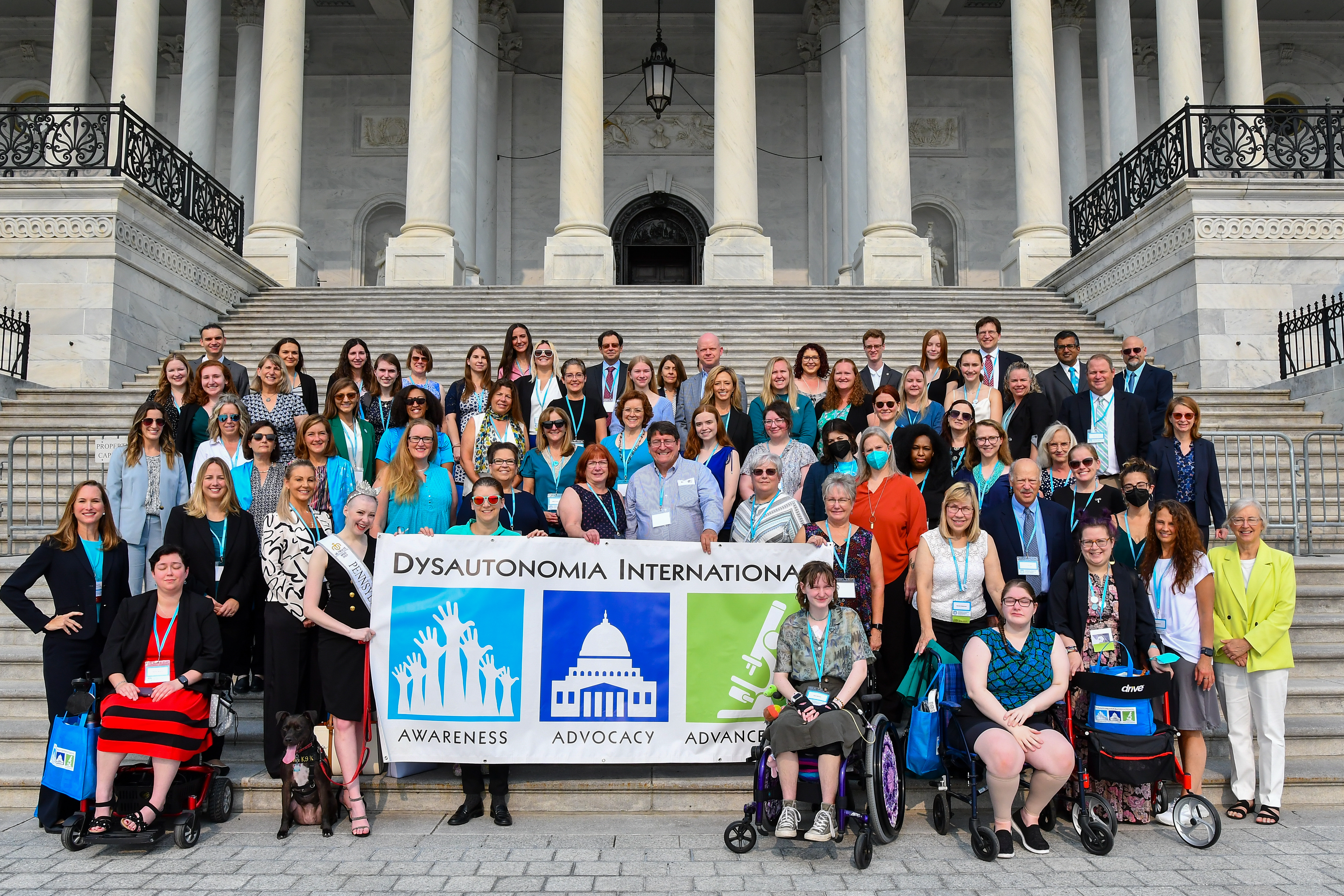
Dysautonomia Advocacy Day 2023
Following the Dysautonomia International 11th Annual Conference, advocates met with over 100 House and Senate offices to push for increased POTS research funding from the National Institutes of Health, and increased support within NIH for the Autonomic Medicine Section, which conducts research on a wide range of autonomic nervous system disorders.
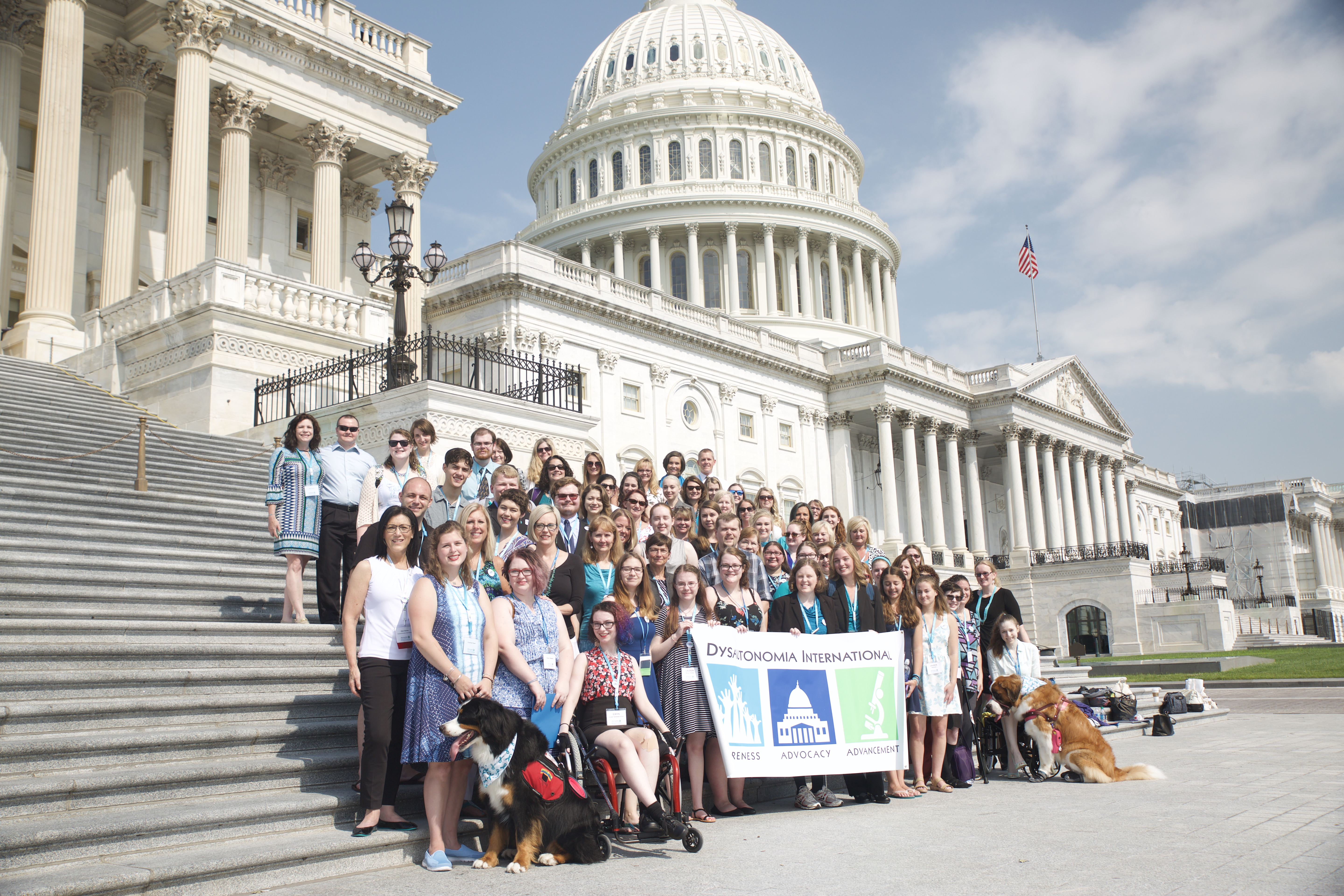
Dysautonomia Lobby Day 2017
Dysautonomia advocates met with hundreds of House and Senate offices to raise awareness about dysautonomia and to encourage increased federal investment in autonomic disorders research.
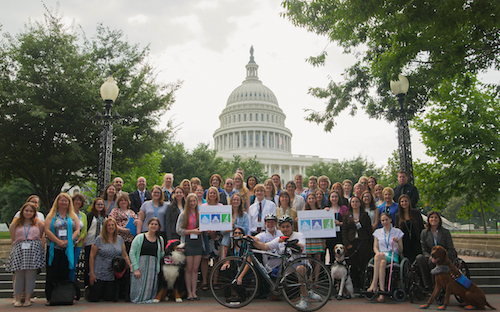
Dysautonomia Lobby Day 2014
During our second Dysautonomia Lobby Day in 2014, Dysautonomia International volunteers met with 50 House and Senate members to discuss three priority issues:
1 - protecting insurance coverage for autonomic testing
2 - ensuring continued access to midodrine
3 - increasing funding for autonomic disorders research and renewal of the Autonomic Disorders Consortium funding
January 2015 Update: The Autonomic Disorders Consortium was renewed! Midodrine is still available in the US. FDA has issued an extension to Shire Pharmaceuticals on their requirement to submit studies documenting the long term efficacy of midodrine. As soon as we have any updates on midodrine, we will post about it on our Facebook page.
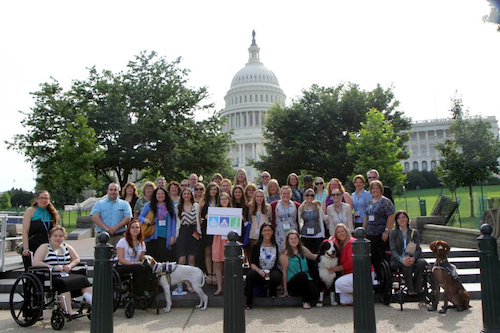
Dysautonomia Lobby Day 2013
During our first Dysautonomia Lobby Day in 2013, we advocated for three issues:
1 - ensuring continued access to midodrine
2 - FDA approval of droxidopa
3 - restoration of medical research funding cut from the NIH budget
Update: Success! The FDA approved droxidopa (brand name Northera) in February of 2013, after an FDA Committee hearing that Dysautonomia International board members testified during. Congress restored most of the funding that had been cut from the NIH during the sequestration, but the threat to NIH research funding is far from over. We must continue to raise the voice of the dysautonomia community on Capitol Hill.
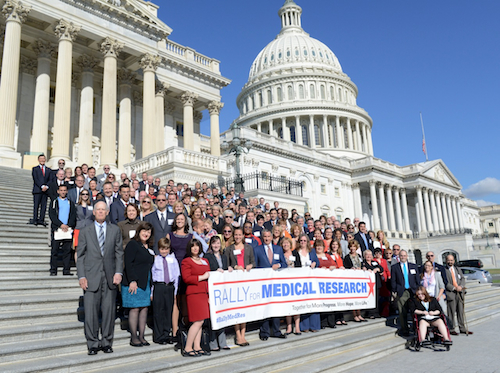
Rally for Medical Research
Dysautonomia International was honored to participate in the April 2013 Rally for Medical Research and the September 2013 Rally for Medical Research Hill Day, both held in Washington, DC. Through cooperative advocacy efforts like this, which included over 170 patient organizations, researchers, universities and private companies, we were able to restore some of the massive budget cuts to the US National Institute of Health, the most important source of independent medical research funding in the world. There is still much work to do, as Congress continues to slash NIH budgets and US researchers continue to move overseas to countries that are expanding their research capabilities.
Rally for Medical Research Website
Dysautonomia International Hill Day Page
Hill Day Talking Points
| | |
|
|
|
